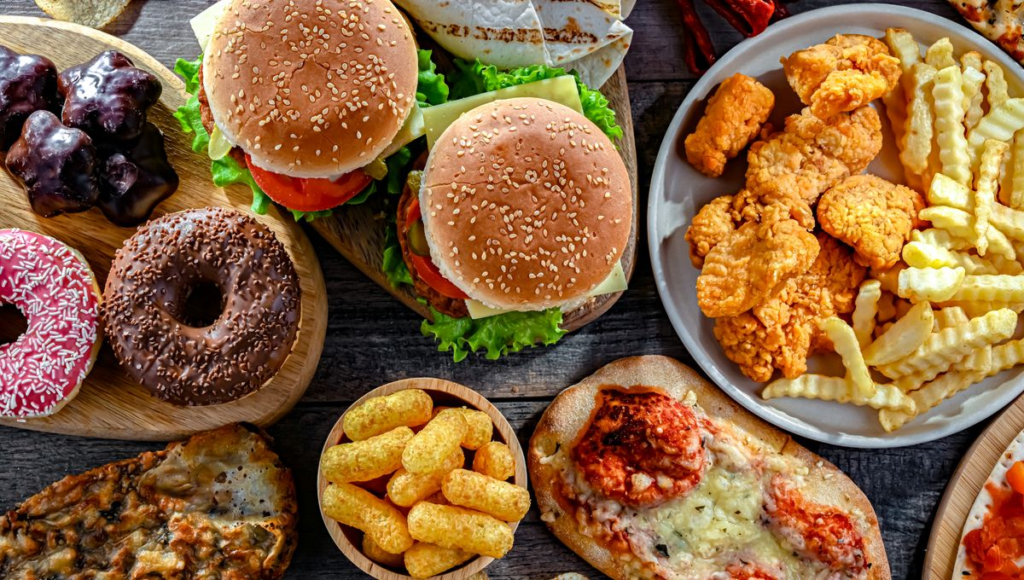Food safety and ultra-processed foods have become important topics in the wider public conversation about what we eat. As more people focus on health and nutrition, questions arise about how safe ultra-processed foods really are and whether food labeling helps people make better choices. Understanding this is important because the food we eat directly affects our health and wellbeing.
In this article, we will explore food safety and ultra-processed foods, why food labeling matters, and what you can do to make healthier choices. Whether you are a parent, health-conscious, or simply curious, this guide will help you understand the bigger picture.
What Are Ultra-Processed Foods?
Ultra-processed foods are products made mostly or entirely from substances extracted from foods. These substances include oils, fats, sugar, starch, and proteins. Often, these foods contain additives such as preservatives, flavorings, colors, and sweeteners to improve taste and shelf life.
Examples of ultra-processed foods include packaged snacks like chips and cookies, instant noodles, sugary drinks, processed meats like hot dogs, and many fast-food items. These products usually have very little whole food content and tend to be high in unhealthy fats, sugar, salt, and artificial ingredients.

Why Are People Concerned About Ultra-Processed Foods?
More people are becoming aware that ultra-processed foods might contribute to health problems such as obesity, heart disease, diabetes, and some cancers. Because these foods are designed to be tasty and convenient, they can lead to overeating and reduce consumption of healthier foods like fruits and vegetables.
There are several main concerns about ultra-processed foods:
- They often have low nutritional value.
- They contain artificial additives that may have unknown long-term effects.
- They can cause people to consume too many calories.
- They are linked to a higher risk of chronic diseases.
This growing awareness has sparked public discussions about what governments, industries, and individuals should do in response.
What Is the Link Between Food Safety and Ultra-Processed Foods?
Food safety means handling, preparing, and storing food to prevent illness and contamination. Ultra-processed foods go through many industrial steps that could increase the risk of contamination if not managed properly.
At the same time, processing and preservatives can extend shelf life and reduce spoilage, which helps prevent foodborne illness. So, food safety in ultra-processed foods has both risks and benefits.
Here are some important points about food safety:
- Food manufacturers must follow strict rules and quality controls during production.
- Risks include contamination by bacteria, chemicals, or allergens.
- Labels should clearly list ingredients and allergens.
- Proper storage and handling instructions are needed to avoid spoilage.
Consumers need clear and reliable information to understand these risks and benefits.
Why Does Food Labeling Matter?
Food labeling is the main way consumers learn about what is in their food. However, many people find food labels confusing or misleading, especially when it comes to ultra-processed foods.
There are several challenges with food labeling:
- Ingredient lists are often long and filled with technical names.
- Nutritional claims like “low-fat” or “sugar-free” can be misleading.
- Different countries use different front-of-pack labeling systems.
- There is no universal definition of what counts as “ultra-processed.”
Clear labeling is important because it helps consumers:
- Identify ultra-processed foods easily.
- Understand the nutritional quality of the food.
- Make better choices based on their health needs.
- Avoid allergens or harmful additives.
How Are Governments Addressing These Issues?
Governments worldwide are working to improve food labeling and regulate ultra-processed foods more strictly.
Some examples of government actions include:
- Front-of-pack nutrition labels that warn about high sugar, salt, or fat.
- Banning certain harmful additives in foods.
- Public education campaigns about the risks of ultra-processed foods.
- Limits on marketing such foods, especially to children.
Although progress is being made, there is still more work to be done to fully protect consumers.

What Can You Do to Make Healthier Choices?
It can be confusing to navigate food safety and ultra-processed foods, but there are practical steps anyone can take.
Here are some tips:
- Read food labels carefully, looking beyond marketing claims to the ingredients and nutrition facts.
- Choose whole or minimally processed foods like fresh fruits, vegetables, whole grains, nuts, and lean proteins.
- Cook more meals at home to control what goes into your food.
- Limit ultra-processed foods to occasional treats rather than daily staples.
- Stay informed by following trusted health advice and government updates.
- Support policies and companies that promote clearer food labeling.
Why This Conversation Matters
Food plays a key role in culture, economy, and health. The rise of ultra-processed foods is connected to modern lifestyles that value convenience and affordability. While these foods can make life easier, their health and safety risks require careful attention.
Talking openly about food safety, ultra-processed foods, and labeling encourages transparency and better regulation. It also reminds us of the importance of eating real, wholesome foods as often as possible.
Conclusion
The discussion around food safety and ultra-processed foods is important as more people try to protect their health and understand the food they eat. With clearer labeling, stronger safety standards, and increased public awareness, consumers can make smarter choices.
Knowing what is in our food and how it affects our health is empowering. By paying attention to food safety, processing levels, and labels, we can all take steps toward healthier eating habits and a safer food system.
If you found this article useful, share it with your friends and family. Understanding food safety and ultra-processed foods helps everyone make better decisions about what to eat.
Do Follow USA Glory On Instagram
Read Next – Private Space-Hosting Initiatives Fuel a New Space Race






